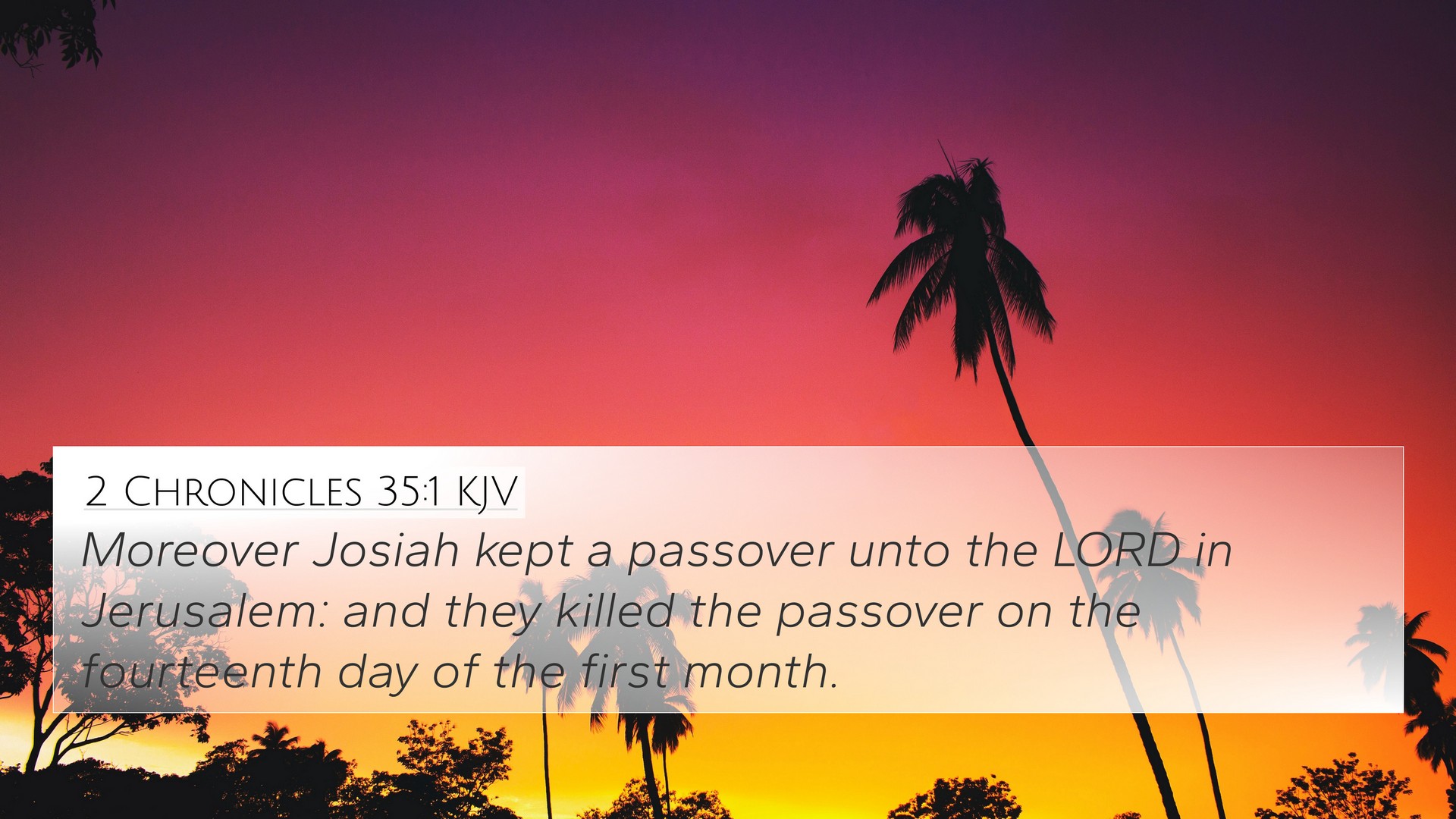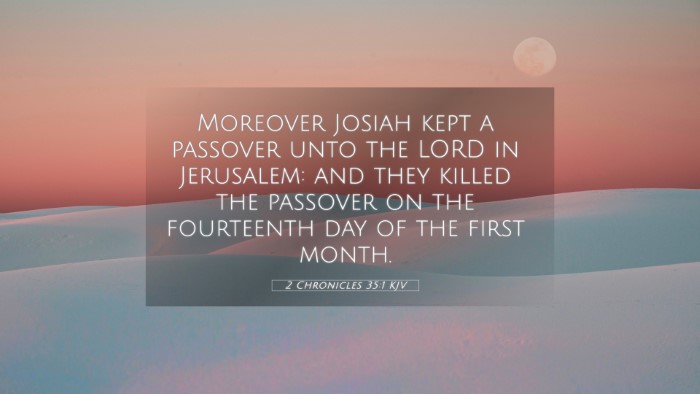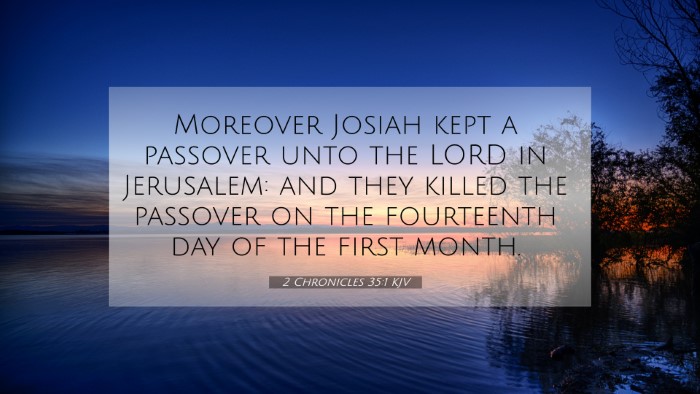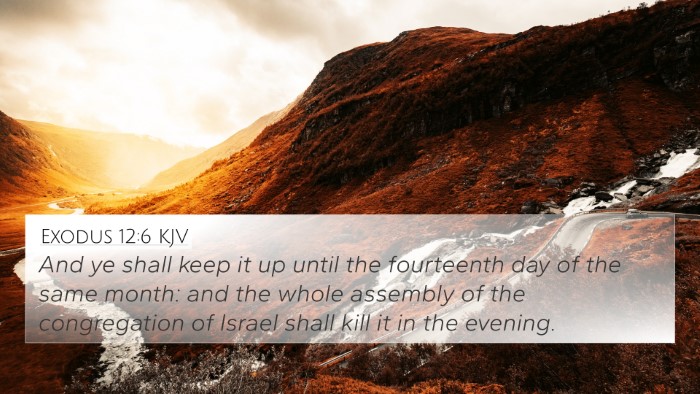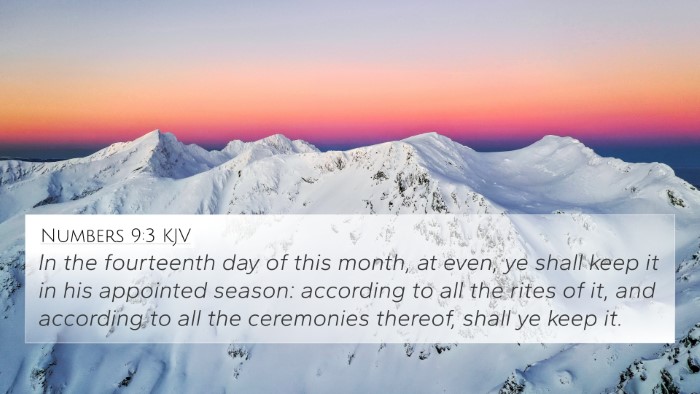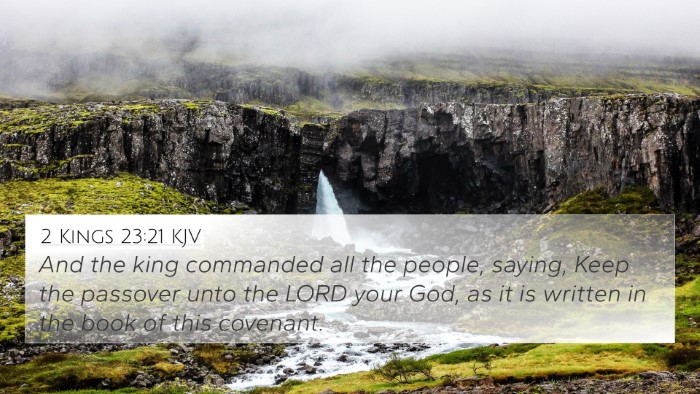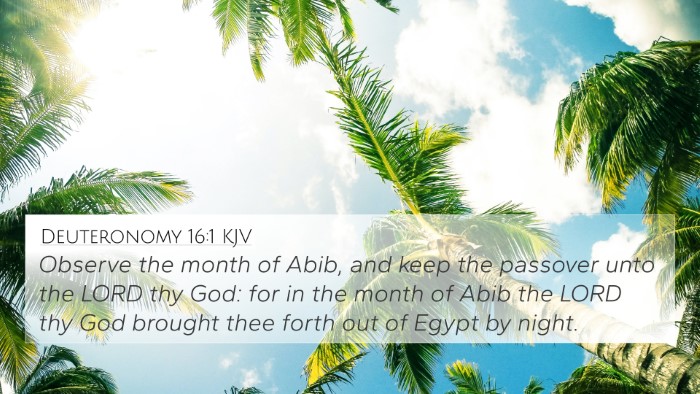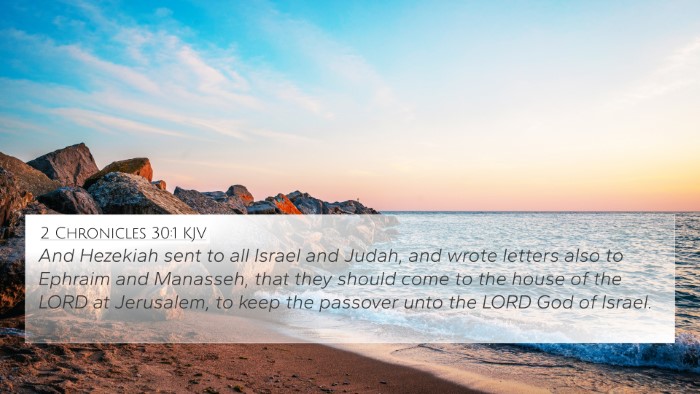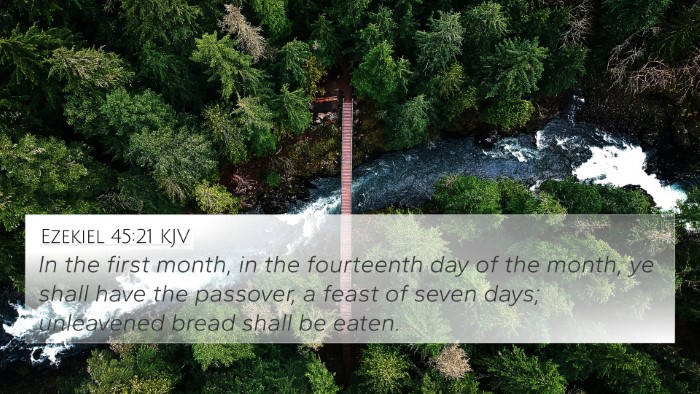Understanding 2 Chronicles 35:1
Verse: 2 Chronicles 35:1 - "Moreover, Josiah kept a passover unto the LORD in Jerusalem: and they killed the passover lambs on the fourteenth day of the first month."
Summary of 2 Chronicles 35:1
This passage highlights the significant event of King Josiah's observance of the Passover in Jerusalem. It illustrates the king's commitment to restoring true worship among the people of Judah, emphasizing the importance of obedience to God’s commandments. By celebrating Passover, Josiah reaffirms the covenant relationship between God and His people.
Commentary Insights
The following insights from public domain commentaries help to deepen the understanding of this verse:
-
Matthew Henry:
Henry emphasizes the religious reforms of Josiah, underscoring the renewal of covenant faithfulness. The observance of the Passover symbolizes both remembrance of God's deliverance and collective commitment to His law.
-
Albert Barnes:
Barnes focuses on the timing and the execution of the Passover, noting its significance in the Jewish calendar. He explains that this event marks a pivotal moment in restoring the worship practices that had been neglected.
-
Adam Clarke:
Clarke offers insights into the implications of the Passover, linking it to themes of redemption and national identity. He highlights the collective participation of the people, reinforcing communal faith and obedience to the divine ordinances.
Cross-References and Related Verses
Here are 10 Bible cross-references that relate closely to 2 Chronicles 35:1, illustrating connections between Bible verses:
- Exodus 12:1-14: The original instructions for the Passover.
- Deuteronomy 16:1-8: Reiteration of the Passover festival and its importance.
- 2 Kings 23:21-23: A parallel account of Josiah's observance of the Passover.
- Luke 22:15-20: Jesus’ institution of the Last Supper, which draws from the Passover context.
- John 1:29: Jesus as the Lamb of God, connecting the imagery of sacrifice.
- 1 Corinthians 5:7: Paul’s depiction of Christ as our Passover Lamb.
- Zephaniah 1:7: A call to silence before the Lord, reflecting the reverence associated with Passover.
- Hebrews 11:28: The faith of Moses in observing the Passover and its significance.
- Matthew 26:17-30: The Last Supper in the context of Passover, highlighting Jewish traditions.
- Revelation 19:9: The marriage supper of the Lamb, rooted in the symbolism of celebration and covenant.
Thematic Connections
The observance of Passover by Josiah underlines several thematic connections throughout Scripture:
- Remembrance: The act of remembering God's deliverance is a recurrent theme (Exodus 13:3).
- Obedience to God’s Commandments: Josiah exemplifies the call for Israel to follow God's laws (Deuteronomy 5:32-33).
- National Restoration: The revitalization of the nation through proper worship reflects God's desire for His people (2 Chronicles 7:14).
- Covenant Faithfulness: The Passover is a reminder of God's everlasting covenant with His people (Genesis 9:16).
Using Bible Cross-References
This examination encourages readers to utilize tools for Bible cross-referencing to identify connections and deepen their biblical understanding. For effective cross-referencing in Bible study, consider:
- Bible Concordance: A helpful resource for locating specific verses quickly.
- Bible Cross-Reference Guide: Provides a systematic approach to finding related texts.
- Cross-reference Bible Study: Engage with scripture by exploring thematic links.
Concluding Thoughts
Understanding 2 Chronicles 35:1 requires recognizing its historical context and theological significance within the narrative of Scripture. Employing comparative Bible verse analysis allows one to discern the interconnected nature of biblical texts and the overarching story of redemption.
Keywords: Bible verse cross-references, connections between Bible verses, linking Bible scriptures, comparative Bible verse analysis, biblical themes, scriptural cross-referencing.
